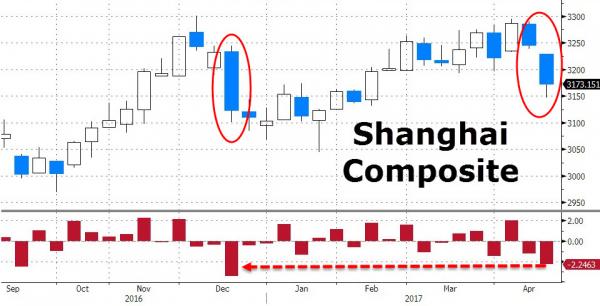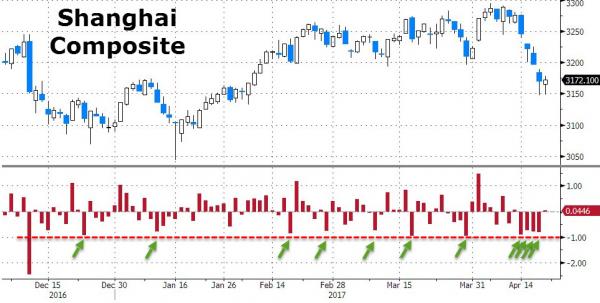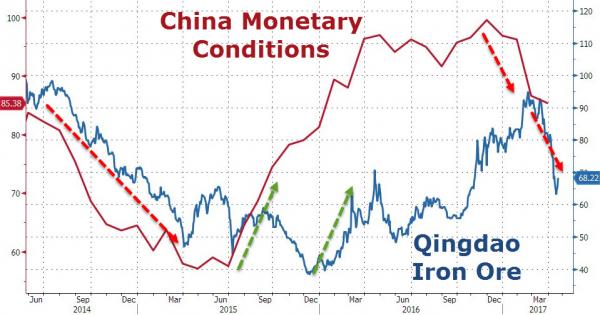The pressure point in Asian stock markets this week has been the decline in Chinese equities (the biggest weekly drop in 4 months).

Despite a stellar performance of the economy, the outlook for the Shanghai Composite Index isn’t promising as the government is taking advantage of better growth to spur deleveraging.
For a market relying more on liquidity than fundamentals, China’s worsening monetary conditions index suggests tough times ahead…

As a reminder, the Shanghai Composite Index, notorious for its wild swings over the past two years, has gone 86 trading days without a loss of more than 1% on a closing basis, the longest stretch since the market’s infancy in 1992.

The last 4 days have highlighted the unusual effect in Chinese stocks.. each time the Shanghai Composite dropped over 1% (red dotted line) it was miraculously lifted to ensure it closed with a loss less than 1%…

As Bloomberg reports, authorities favor a steady stock market because it helps companies fund investment and repay debt by issuing new shares, which could help boost economic growth, according to Yin Ming, a vice president at Baptized Capital in Shanghai.
“The national team is behind it,” Yin said. “State funds will likely continue to be a market stabilizer.”
So one wonders, is China desperate to delever the speculative fervor in their markets… but do it just 1% at a time? Can the ‘market’ really be that well centrally planned? We will see…
If the 6-month lag in Chinese commodities is anything to go by, the breakdown in Chinese stocks is nowhere near over…














Leave A Comment